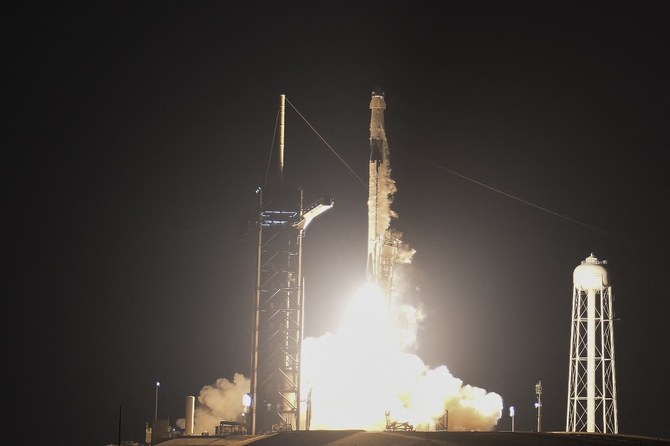
There is no doubt that the country leading the space race is the US. It has developed a winning formula that allows for private companies to find a path toward growth. This model has not been replicated anywhere else.
Let us start with the basics, which is the launching of rockets into space. We quickly notice that, with 76 launches in 2022, the US is leading the way. It is important to note that 60 of these were achieved by Elon Musk’s SpaceX, a private company. Second comes China and its government-owned China Aerospace Science and Technology Corporation, which achieved a similar total to SpaceX. The US’ contract-based system empowers a real commercial creation that goes beyond security. The market size and its rules are a clear advantage for US companies.
There is today a new vision for space that goes beyond launches and this offers opportunities on a global scale. As more assets are deployed into orbit, this becomes a full-on ecosystem and creates real business models and economic activities, starting with mobility. Moreover, with plans to establish a permanent presence on the moon, this also opens up further developments. All this is happening while we are reaching the end of an epoch of global collaboration and are noticing more domestic or regional initiatives. Despite the new commercial side of space, ultimately it mirrors what is happening geopolitically on Earth. Only allies can become business partners. And this is logical.
On that matter, there is something very revealing about the planned replacements for the International Space Station by each nation. The ISS will be decommissioned in 2031 and so each country is preparing an alternative. The Chinese government has developed its own successor, the Tiangong space station, which was launched in 2021 and which highlights the country’s policy of self-reliance. It is entirely built and run by the Chinese government.
The US has chosen a different approach, opening the way for private companies to bid for government tenders and creating a business model for other commercial activities. This approach makes private companies more resilient and encourages new commercial activities. It is also symbolic of the importance of entrepreneurship and private initiatives, which is what makes the US attractive.
Through these tenders and contracts, the US is smartly ensuring even bigger growth for American companies
Khaled Abou Zahr
The interesting point is that the US government and various institutions are probably the only ones in the world to give these large contracts. This is not the case in Europe or in China. The recent announcement by the US Space Force that between 60 and 70 missions are projected for the National Security Space Launch Phase 3 procurement will give even more growth and power to the US space market. Through these tenders and contracts, the US is smartly ensuring even bigger growth for American companies and the capacity to integrate vertically swiftly.
This is already happening as, if we look at the leader in the domain, SpaceX, we notice that it goes beyond mere launches. It is also about the internet and communications through its Starlink system. Moreover, its propulsion systems are impressive and more will come. Without government contracts, this would never have been possible. Obviously, it takes two to tango and, without Musk’s determination and his willingness to put his private capital at risk, this would not have happened.
I cannot help but ask if the US will open up more of its tenders to non-US companies that are part of its alliance? Will it be possible to see more access to the market and technology in order to support the growth of private companies in Europe or even the Gulf Cooperation Council? There are, understandably, export and participation restrictions due to the dual-use nature of many of the technologies and clear security and national defense priorities.
However, would it not make the alliance stronger if there were greater access to parts of this market for non-US companies? This could be in the form of collaborations and partnerships between space entrepreneurs. And for young space companies, it is easier to work with other companies in the US than to work directly with government entities. The US market provides an opportunity that is not available elsewhere. This capacity-building needs to be an important aspect of the transatlantic alliance.
The vision for Europe and the European Space Agency seems to be toward this structure, but it is not easy to move forward and change everything in a day. There has, nevertheless, been impressive changes, which are grounds for optimism. Here, there is also a great opportunity for collaboration between entrepreneurs to use the dual-use technology to develop new concepts and companies. The need for later-stage financing and broader markets is a key point for the future of this domain in Europe.
There is also positive news within the transatlantic partnership. Last year, NATO announced the launch of its Innovation Fund dedicated to the transatlantic alliance. The fund will invest €1 billion ($1.06 billion) in early-stage startups and other venture capital funds developing emerging dual-use technologies of priority to NATO. Having also created the Defense Innovation Accelerator for the North Atlantic, NATO will leverage the depth of expertise and breadth of access in the alliance to source future capabilities from dual-use innovators.
These are positive signs toward integration. Greater access to the US market would empower this strategy even more. It will not be easy to achieve, but who would have imagined an ecosystem in space just a few decades ago?
Khaled Abou Zahr is the founder of Barbicane, a space-focused investment syndication platform. He is the CEO of EurabiaMedia and editor of Al-Watan Al-Arabi.












